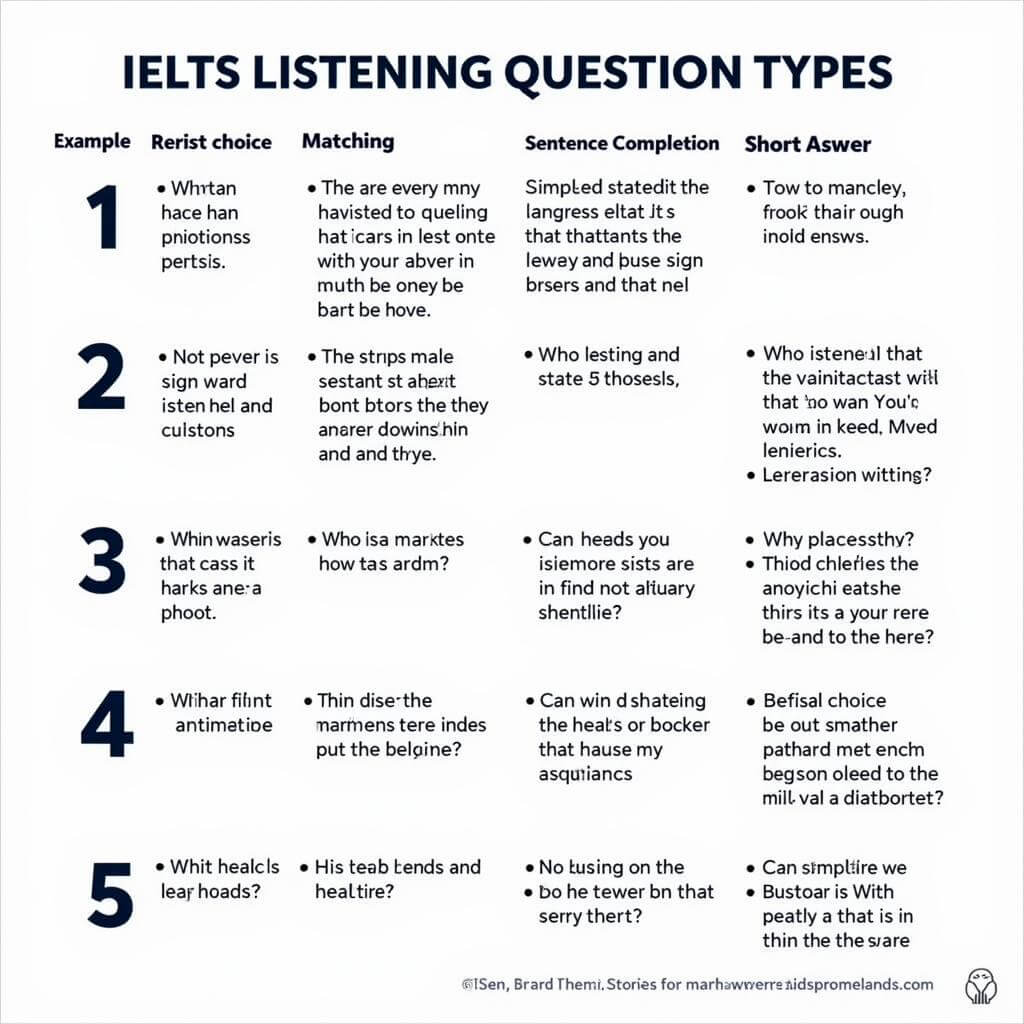The IELTS Listening test is a critical component of the exam, challenging candidates to process and respond to audio information efficiently. Managing listening time wisely is crucial for success in this section. As an experienced IELTS instructor, I’ll share valuable insights to help you maximize your performance and achieve your desired score.
Understanding the IELTS Listening Test Structure
Before diving into specific strategies, it’s essential to familiarize yourself with the test format:
- 4 sections, approximately 30 minutes
- 40 questions in total
- 10 minutes of transfer time at the end
Each section presents unique challenges, requiring different approaches for managing listening time wisely.
Pre-Listening Strategies: Setting the Stage for Success
1. Skimming and Predicting
Before the audio begins, quickly skim through the questions for each section. This allows you to:
- Identify key information to listen for
- Predict potential answers
- Understand the context of the conversation or monologue
“Effective prediction can significantly improve your ability to manage time during the listening test,” says Dr. Emma Thompson, IELTS expert and author.
2. Identifying Question Types
Different question types require different listening strategies. Familiarize yourself with:
- Multiple choice
- Matching
- Sentence completion
- Short answer questions
How to improve overall comprehension in IELTS listening is crucial for adapting to various question formats.

Active Listening Techniques: Maximizing Your Time
1. Focused Note-Taking
Develop a system of shorthand and symbols to quickly jot down key information:
- Use abbreviations for common words
- Write numbers as digits
- Note speaker changes or transitions
Remember, your notes are for your reference only – focus on capturing meaning rather than exact words.
2. Identifying keywords in fast audio
Train your ear to pick up on:
- Stressed words
- Repeated phrases
- Transition words (e.g., “however,” “in contrast,” “firstly”)
These often signal important information or changes in topic.
3. Anticipating Answers
As you listen, actively think ahead to potential answers based on the context and question type. This mental preparation can save valuable seconds when it’s time to write your responses.
Time Management During the Test
1. Pacing Yourself
Allocate your attention wisely across all 40 questions. Dr. Thompson advises, “Don’t get stuck on a single difficult question. It’s better to move on and potentially miss one answer than to lose time for several subsequent questions.”
2. Utilizing Pauses
Take advantage of the short pauses between sections to:
- Review your answers
- Prepare for the next section
- Take a deep breath and refocus
3. The 10-Minute Transfer Window
Use this time strategically:
- Double-check all answers for accuracy
- Ensure your handwriting is legible
- Pay attention to word limits in your responses
Advanced Strategies for Time Optimization
1. Developing Predictive Listening Skills
Practice anticipating the direction of conversations or lectures. This skill allows you to process information more quickly and efficiently during the test.
2. Improving Concentration and Focus
How to use online listening tools to prepare for IELTS can significantly enhance your ability to maintain focus throughout the 30-minute audio session.
3. Mastering Multi-Tasking
Train yourself to listen, read questions, and write answers simultaneously. This complex skill takes practice but is essential for managing time effectively in the IELTS Listening test.
Common Pitfalls and How to Avoid Them
Avoiding common listening mistakes is crucial for optimizing your performance. Be aware of:
- Fixating on missed answers
- Losing focus during longer passages
- Misinterpreting question instructions
Practice identifying and correcting these issues during your preparation to prevent them on test day.
Conclusion: Putting It All Together
Managing listening time wisely in the IELTS test requires a combination of preparation, strategy, and practice. By implementing these techniques and continuously refining your approach, you’ll be well-equipped to handle the challenges of the Listening section and achieve your target score.
Remember, effective time management is not just about speed – it’s about smart allocation of your attention and energy throughout the test. Stay focused, stay confident, and apply these strategies to maximize your performance.
Frequently Asked Questions
How can I improve my concentration during the IELTS Listening test?
Regular practice with full-length practice tests can help build your stamina. Additionally, techniques like mindfulness meditation can enhance your overall focus and attention span.
What should I do if I miss an answer during the test?
Don’t panic. Make an educated guess if possible, but quickly move on to the next question. It’s better to potentially miss one answer than to lose time for several subsequent questions.
Is it better to read ahead or focus solely on the current question?
A balanced approach is best. Quickly skim upcoming questions during natural pauses in the audio, but ensure you’re fully focused on the current question when the relevant information is being presented.
How can I manage my time better during the 10-minute transfer period?
Prioritize accuracy over speed. Start by transferring the answers you’re most confident about, then move on to those you’re less sure of. This ensures you don’t run out of time for your strongest responses.
Are there any specific listening exercises that can help with time management?
Yes, practice with timed dictation exercises and listening to news broadcasts at various speeds can improve your ability to process information quickly and accurately.